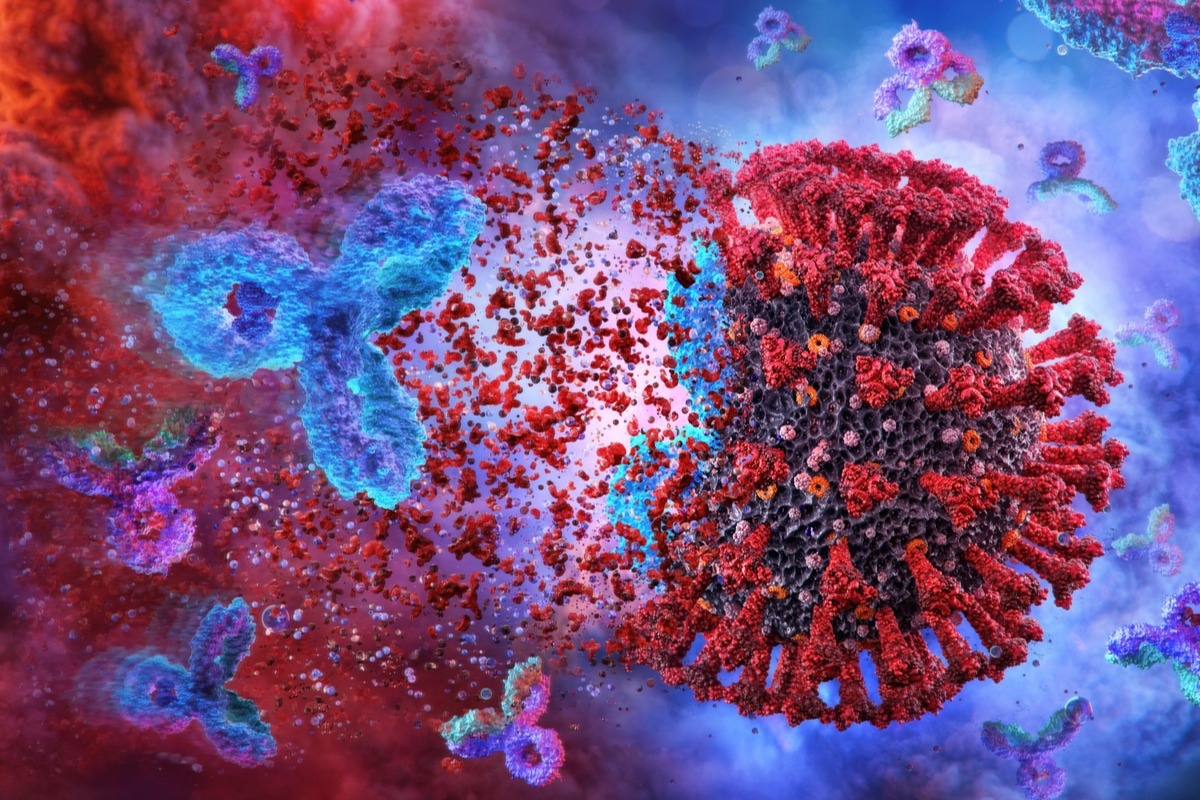Scientists from Ireland and France have recently evaluated the kinetics of anti-severe acute respiratory syndrome coronavirus 2 (SARS-CoV-2) antibody response induced by acute infection or vaccination.
 Study: Kinetics of the SARS-CoV-2 Antibody Avidity Response Following Infection and Vaccination. Image Credit: Corona Borealis Studio/Shutterstock
Study: Kinetics of the SARS-CoV-2 Antibody Avidity Response Following Infection and Vaccination. Image Credit: Corona Borealis Studio/Shutterstock
Background
Severe acute respiratory syndrome coronavirus 2 (SARS-CoV-2), the causative pathogen of coronavirus disease 2019 (COVID-19), has caused unprecedented damage to the global healthcare system, with more than 550 million confirmed cases and over 6.3 million deaths worldwide.
The COVID-19 vaccines made at record speed to control the pandemic trajectory have shown high efficacy in reducing SARS-CoV-2 infection rate, symptomatic COVID-19, hospitalization, and mortality.
Regarding kinetics of anti-SARS-CoV-2 antibody response, studies have shown that acute viral infection or vaccination takes about 6 – 15 days to induce an antibody response, followed by a sharp decline within 3 – 6 months.
In the current multicentric study, the scientists have thoroughly estimated the titers and binding affinity of antibodies targeting five different antigens of SARS-CoV-2, including the spike protein, receptor-binding domain (RBD), nucleocapsid, spike S2 subunit, and membrane-envelope fusion.
Study design
The kinetics of infection-induced antibody response was determined by analyzing a total of 522 SARS-CoV-2-positive serum samples collected from 174 healthcare workers over nine months after symptom onset.
Similarly, the kinetics of vaccination-induced antibody response was determined by analyzing serum samples collected from 86 residents of nursing homes who had received two doses of the mRNA-based COVID-19 vaccine developed by Pfizer/BioNTech. The serum samples were collected before vaccination and five weeks and six months after the second vaccination.
The serum samples were analyzed by bead-based multiplex assays to estimate the titers and binding affinities of anti-SARS-CoV-2 antibodies targeting five different viral antigens.
Anti-SARS-CoV-2 antibody titers
The kinetics of all tested IgG antibodies revealed a sharp increase in serum titers both after infection and vaccination, followed by a rapid decline over the first 3 – 6 months. Afterward, the antibody titers entered a phase of slower decline.
Regarding the kinetics of IgA-specific antibody response, anti-spike and anti-RBD antibodies showed a similar pattern as IgG antibodies. However, IgA antibodies declined more rapidly than IgG antibodies.
Compared to vaccinated individuals without infection, consistently higher IgG antibodies against the spike protein, RBD, and S2 subunit were observed in vaccinated individuals with prior infection.
Binding affinity of anti-SARS-CoV-2 antibodies
The analysis revealed that the binding affinity of anti-RBD IgG antibodies reached a peak value at 60% in vaccinated individuals ten weeks after the first vaccination. However, in previously infected but not vaccinated individuals, it took 30 weeks to reach the same level.
In elderly individuals who were previously infected and vaccinated, the binding affinity of anti-spike and anti-RBD antibodies reached a peak value at 100% ten weeks after vaccination. However, in vaccinated elderly individuals without prior infection, the binding affinity reached a peak value at 60%.
Analysis of recent infection
The distinct kinetics of antibody titer and binding affinity observed in the study highlight the need for estimating the time since previous SARS-CoV-2 infection. It is well-documented that antibody binding affinity assays are useful in differentiating between recent and past infections.
Estimation of the time since the previous infection was done by including antibody binding affinity measurements as well as antibody titer measurements in machine learning algorithms. The findings revealed that antibody binding affinity is a vital biomarker for identifying recent infection and can increase the estimation accuracy from 62% to 78%.
Study significance
The study highlights the significance of integrating antibody binding affinity measurements in serological assays to improve serosurveillance during the COVID-19 pandemic.
Novel mutations emerging in SARS-CoV-2 variants are primarily responsible for lower antigen-antibody binding strength and higher viral spike-host cell receptor (angiotensin-converting enzyme 2) binding strength. These two factors collectively increase the immune evasion and transmission abilities of SARS-CoV-2.
Considering these facts, the scientists believe that studying the changes in binding affinities of antibodies for newly emerging viral variants would be valuable in improving the preparedness for the pandemic.